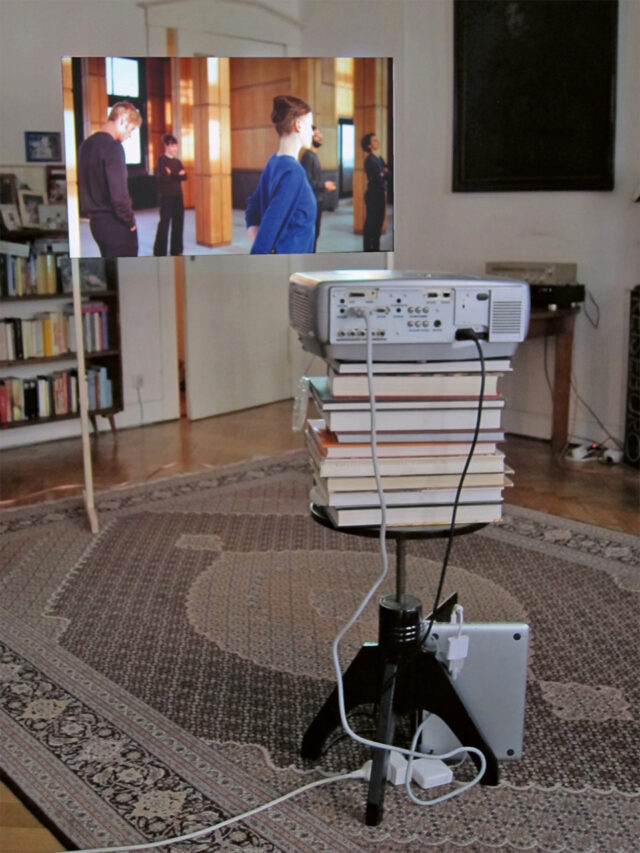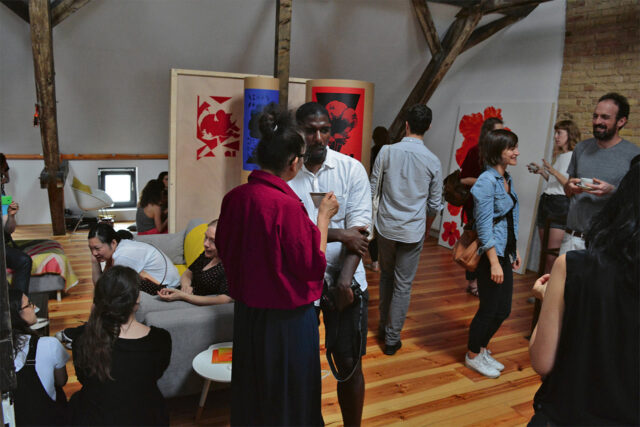2012
Initiative
Sonntag ist eine regelmäßig in Berlin veranstaltete soziale Plas- tik. Von den Künstler*innen April Gertler und Adrian Schiesser im September 2012 ins Leben gerufen, findet die Kunstveranstal- tung jeden 3. Sonntag im Monat in wechselnden privaten Berliner Wohnungen statt. Sonntag sieht sich als eine Plattform für internationale in Berlin lebende Künstler*innen zur Weiterent- wicklung ihrer künstlerischen Aktivitäten. Als einen Ort, um zeit- genössische Kunst einer breiteren Öffentlichkeit zu präsentieren, verknüpft mit der deutschen Tradition des Beisammenseins bei Kaffee und Kuchen an einem Sonntagnachmittag. Sonntag lädt einen/eine Künstler*in ein, bei Kaffee und Kuchen Arbeiten in ei- ner privaten Wohnung zu zeigen. Durch diese soziale Erfahrung findet ein Austausch statt, der eine Verbindung zwischen dem/ der jeweiligen Künstler*in und den Betrachter*innen herstellt.
auslandsprachen @ sonntag
english text

